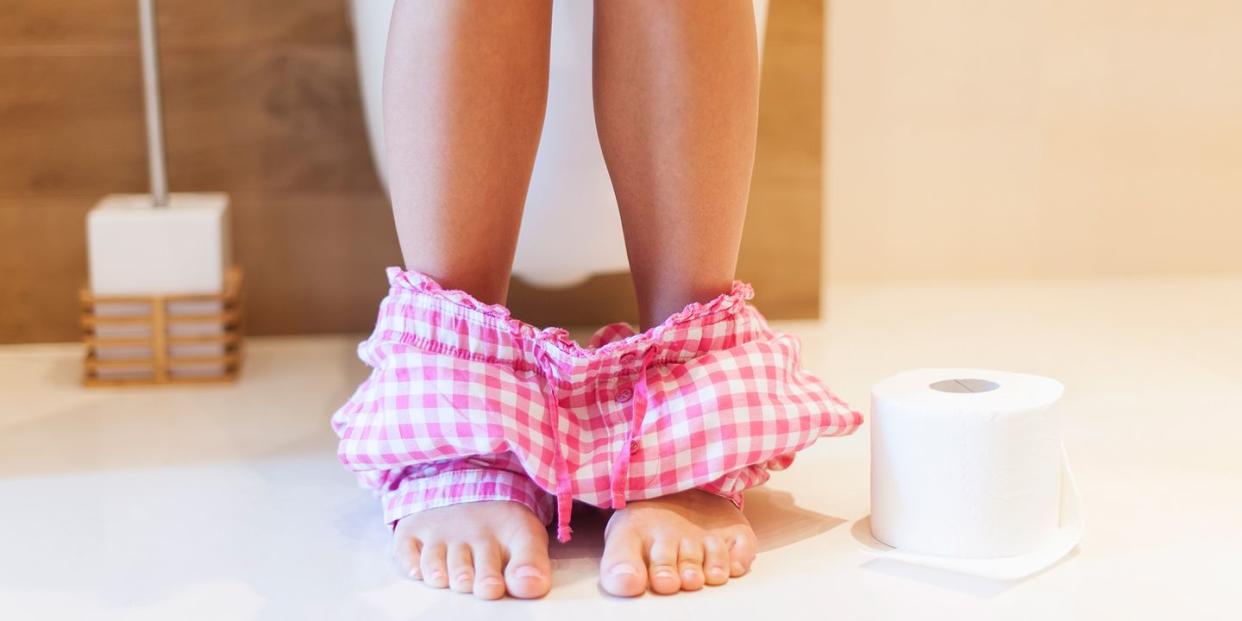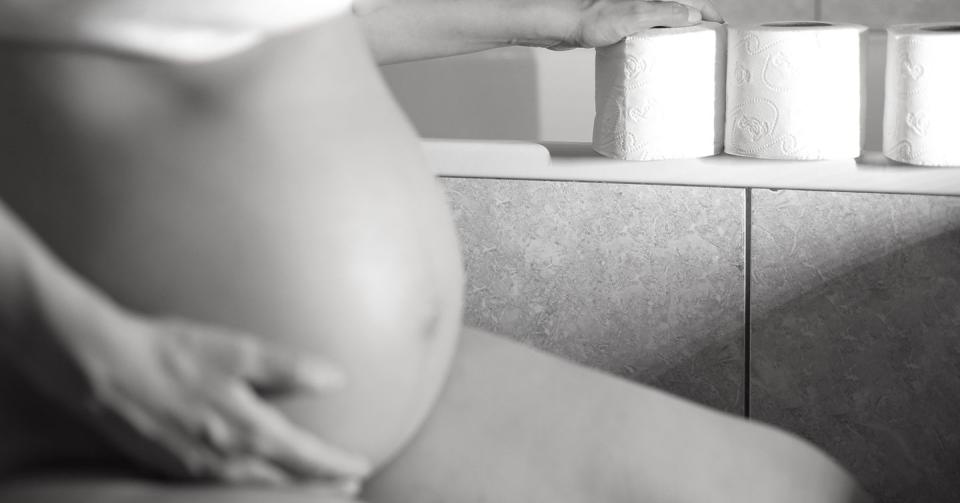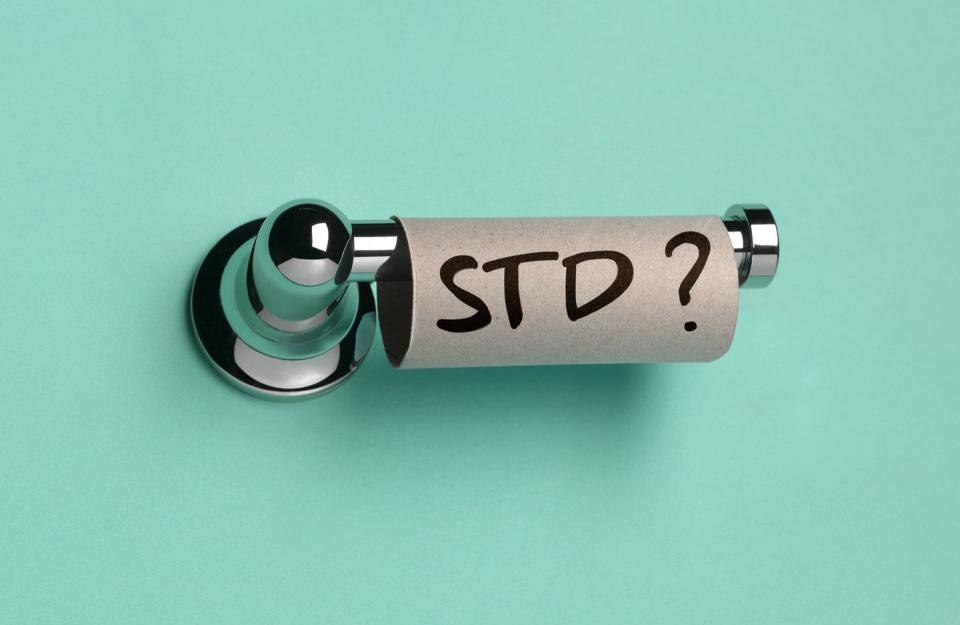Here's what could be causing your smelly urine

Smelly urine can affect anyone, and although its often not cause for concern, it can occasionally be worth checking on if the problem persists. Whether you're worried about STIs or just want to check that your smell is normal, Cosmopolitan spoke with Dr Deborah Lee, of Dr Fox Online Pharmacy, who shared the reasons your pee could be smelling...
Why you might be getting smelly urine
There are a number of reasons why your pee could smell, but it's generally best to start with what you've eaten and drank recently.
"Whenever you consume food or drink, these products need to be metabolised within your body," says Dr Lee. "This metabolic process produces by-products, and these by-products must then be excreted. Many of these by-products are excreted in our stools (faeces). However, some specific substances are excreted in the urine. These products can sometimes affect the way the urine smells.
"Fish, onions, and garlic are good examples. Coffee, curry, and salmon can do this too. Asparagus is well known to have a distinctive smell in the urine – it contains asparagusic acid, which smells a bit like sulphur."
But food isn't the only explanation. "Any medication which increases the sulphur content of your urine can cause urine to smell," says Dr Lee. "For example, antibiotics called sulphonamides, often used to treat urine infections. Sulphur products tend to smell like rotten eggs.
"Urinary tract infections (UTIs) also commonly result in smelly urine. The overgrowth of bacteria within the bladder causes bladder wall inflammation, and an accumulation of white blood cells. Pus has a very unpleasant smell, as you will know if you have ever had a boil or an abscess.
"Diabetes can also cause your urine to smell. Firstly, if you develop diabetic ketoacidosis (DKA), this causes an increase in ketones in the urine. Ketones smell like acetone – like pear drops, or like nail-polish remover. DKA usually occurs in people with Type 1 diabetes, and is a medical emergency.
"If diabetes remains undiagnosed or poorly controlled, high levels of glucose in the urine may make the urine smell sweet."
"Kidney stones can also be associated with foul-smelling urine."
Related: Woman Told by Doctors She Was Just Fat, Actually Had Cancer
What urine smells are 'normal'?
It's worth noting that "normal" is different for everyone, but as Dr Lee points out: "We‘re generally unaware of the smell of our urine. If you start noticing the odd whiff - chances are, something is at fault - although not necessarily anything harmful." Essentially, listen to your own body, and not necessarily what Google says.

"It’s perfectly normal for your urine to have a slight smell of ammonia. However, the smell can become more intense, for example, if you become dehydrated, and the urine is more highly concentrated. This can also happen if you have too much salt in your diet."
Why do pregnant women get smelly urine?
Your body changes a lot when pregnant, so you might not immediately notice a chance in the smell of your pee. If you do, just know that you don't necessarily need to panic. "Women often develop a heightened sense of smell when they are pregnant," says Dr Lee. "So, if a pregnant woman starts complaining about the smell of her urine – it could be her nose, rather than her urine, which is the cause of the problem!

"Vitamin D is excreted in the urine and can give an unpleasant smell. Women often take vitamin supplements in pregnancy. The RCOG recommends vitamin supplementation in pregnancy, with folate and vitamin D.
"Urine infections are more common in pregnancy and may result in foul-smelling urine. This may be because of the pressure from the pregnant uterus (womb) directly onto the bladder. Morning sickness, if severe, can lead to dehydration and cause urine to smell as it becomes concentrated."
Can STIs cause smelly urine?
Yes - and if you haven't had a check-up for a while, now's the time.
Dr Lee explains: "Usually, STIs cause urine to smell because vaginal discharge is mixed in with the urine.
"It’s very common for people to attend the clinic with urinary symptoms - when they actually have an STI - and not a UTI. In general, UTI's are often over-diagnosed, and STIs are often under-diagnosed. If you have urinary symptoms it's always important to be accurately assessed, tested, and treated.
"For example, trichomoniasis vaginalis is well known to cause a fishy smelling discharge. Chlamydia can result in an unpleasant smelling discharge, although this surprisingly often causes no symptoms at all, while Gonorrhoea is said to cause a mushroom-like smell from the genital area.

"Bacterial vaginosis (BV) affects around 28-30% of women aged 14-49 attending GP surgeries and GUM clinics in the UK. Some women have no symptoms, and it may be that when you think your urine is smelly, this is actually BV - however, BV is not an STI.
"Although women frequently suffer from attacks of vulvovaginal candidiasis (thrush), this is usually odourless.
"Don’t forget, an often forgotten cause of a smelly vagina is a forgotten tampon! You may think it’s the urine – but that smell could well be due to something else entirely."
When should you see a doctor?
"There’s no need to see the doctor if you feel well and have no other symptoms. In the majority of cases, wait and see, drink plenty of fluids, and see if the smell disappears," says Dr Lee.
However, she advises getting medical help if you have any of the following:
Symptoms suggestive of a UTI, such as pain passing urine, passing urine frequently, blood in the urine, or lower abdominal pain.
Symptoms suggestive of a kidney infection, such as loin pain, or back pain.
Generalised symptoms such as a fever, rigors, feeling generally unwell, lethargy, nausea, vomiting.
If you are pregnant, or have any medical conditions such as diabetes, or a weakened immune system.
If you are known to have kidney disease or kidney stones.
Is there a treatment for smelly urine?
You should see your doctor if you're concerned that your body is acting differently. Dr Lee says: "The best way to treat smelly urine is to identify the cause. Make sure you eat healthily, including plenty of fruit and vegetables, and drink plenty of water – at least two litres per day. Reduce the amount of salt in your diet.
"If you do see your doctor, you are likely to need a midstream urine test, and it may be that you would benefit from a full STI screen."
In terms of everyday behaviours, she explains: "Make sure you keep your genital area clean. Wear cotton underwear, not too tight-fitting. Keep your bathroom and toilet, clean and well sanitised."
Like this article? Sign up to our newsletter to get more articles like this delivered straight to your inbox.
You Might Also Like

